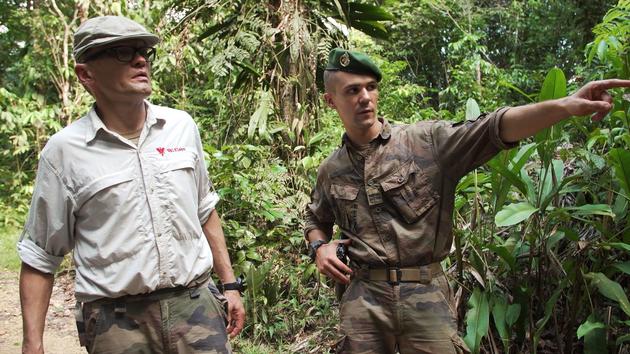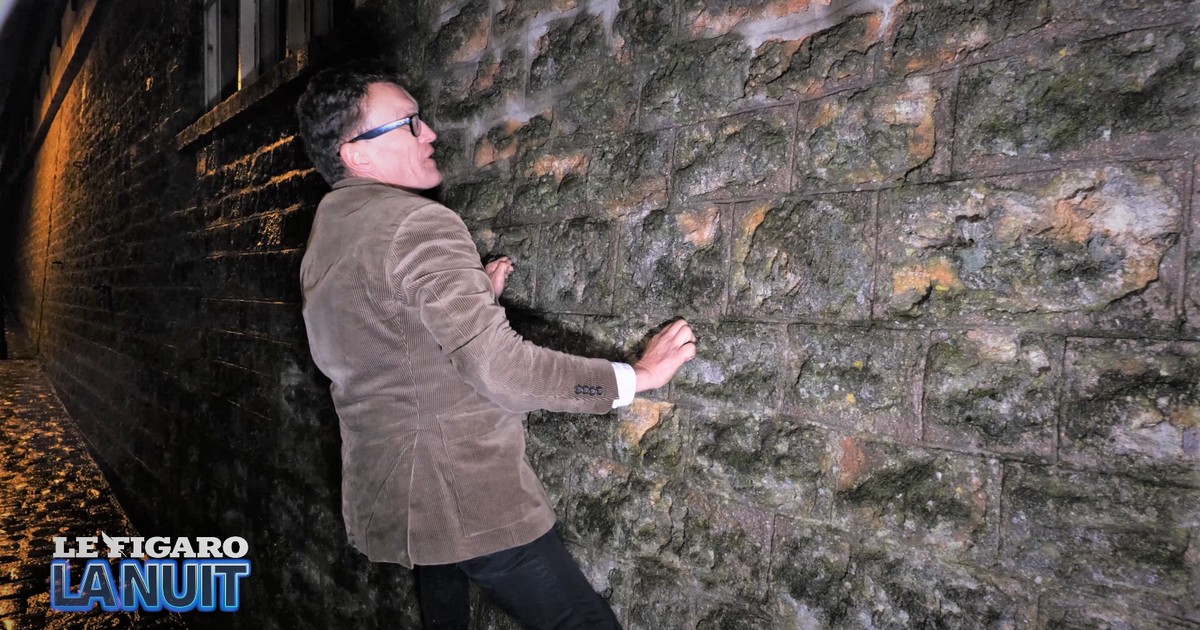The
Legion, this force which lasts in an ephemeral world, this body which absorbs in a world which divides, this matrix which forgets in a world which archives everything ... "
The words of Sylvain Tesson, which the writer-traveler says in his voice off or expresses in front of the camera during the adventure that he lived alongside the legionaries of Guyana, transcend the action, the real, the physical sufferings of the soldiers of the jungle. This is to achieve a universal ideal. This poetic dimension gives all its flavor to the film
Voyage au pays des hommes sans nom
, directed by Philippe Bodet and written, therefore, by Sylvain Tesson, broadcast on France 2 as part of the magazine “Infrarouge”.
His face streaming with sweat, the author of
La Panthère des neiges
catches his breath. He has just successfully completed, jumping from vine to vine and plunging into the mud, a grueling obstacle course. A test faced, in the middle of the tropical forest, eighteen young legionaries in survival training.
“We always have an interest in descending into the arena of reality and experiencing things physically if we want to
understand them better,
”
explains the narrator. To the captain who congratulated him, he confided that hearing legionaries of all origins (90% of them are foreign) encouraging him in the effort in French, corresponds for him to
"one of the great poetic dimensions of the Legion" .
With its staff from all over the world - especially from Brazil, so close to Guyana - the Foreign Legion indeed embodies an ideal that combines universalism and love for France.
"The tears of the forest"
It is precisely to open up to others that a young French lieutenant left his studies, his
“ancient humanities, Greek, Latin, literature,”
explains Sylvain Tesson. The writer joins the officer in his forward operational post (POA). There, cut off from the world, he commands a dozen soldiers - among them, two Ukrainians, a Nepalese or even a Hungarian - with whom he tracks down illegal gold miners. The legionary explains:
“
I wanted to command people who were profoundly different from myself. I wanted to approach a stranger. (…) I learn every day to discover very radical men who have chosen expatriation. (…) The fact of being uprooted, for them, is a strength. They are ready to do what others may not be able to do
.
"
In this literate lieutenant, Sylvain Tesson detects the soul of a poet:
" His itinerary resembles a flight out of the university, out of abstraction, such as that of Rimbaud, who suddenly hung up poetry to grasp reality in full hands. The Legion is the real, the action, the accomplishment, the result. In short, it is one of the experiences which leads to fully expressing the matter, the flesh, the substance of existence
.
"
Facing the hammock of the young chef, the writer of the great outdoors notes:
" It's quite spartan, but it's a little the idea that we have of the spirit of the lieutenant (...) on the borders of the old empire (…) and which maintains a small independent fort, solitary, fairly free. "
What the officer confirms with a smile:
"There is some truth, a kind of estrangement from the world which is quite pleasant."
It is on the Ile Saint-Joseph, one of the three islets of the archipelago of Salvation, where the Cayenne penal colony was located, closed in 1953, that the writer completes his journey. The place has been a resting place for returning legionaries since the 1980s. A former chief warrant officer of Spanish origin, Antonio Lopez, naturalized French in 2012, keeps the premises. At the top of the island, this legionnaire with twenty-seven years of service wanders through the ruins of the penal colony invaded by lianas, which are, he says,
“the tears of the forest”
. The old soldier says his love for France:
“You find everything in this country, it's an amalgam, a mixture. (…) Only France could create the Legion
.
"" Amalgam is a very beautiful word,
notes the writer.
(…) Too bad people don't know
.
"
By way of conclusion, Sylvain Tesson evokes Blaise Cendrars, the poet who was a legionary in 14-18 and who declared that
"the man of war as the poet are both seamed with scars".















